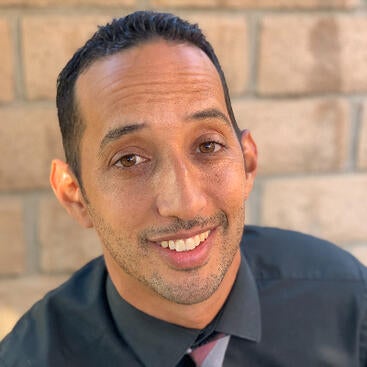W ork hard. Work smart. And you’ll go far.
The assumption above is called meritocracy: the belief that those on top of social hierarchies have earned their positions because of their superior “excellence” — a high ability combined with a strong work ethic.

Yet, meritocracy also can be a paradoxical myth that some political leaders use to justify institutional inequalities, such as schools that are understaffed and poorly equipped. People in the United States strongly believe that anyone who works hard can succeed, but Americans also experience less social mobility than the people of almost any other developed nation.
Suneal Kolluri, an assistant professor in UCR’s School of Education, will soon be probing how the paradox is perpetuated or resisted in U.S. high schools with a fellowship from the Spencer Foundation recently awarded by the National Academy of Education.
The fellowship will allow him to devote two semesters to apply social network and ethnographic methods to understand how meritocratic ideologies manifest among racially, ethnically, and socioeconomically diverse students on the precipice of adulthood.
Kolluri will work with high schools whose stated mission is to pursue “excellence and equity,” two ideals at the foundation of meritocracy. He will explore spaces in which they go hand-in-hand and the tensions between them. He will survey and interview students and educators to understand their experiences and perspective on equity, excellence, and meritocracy in their school and throughout the nation.
Kolluri said wants his work to support the school’s goals, such as incorporating culturally relevant teaching content and methods, flattening status hierarchies, and improving the participation of marginalized students in Advanced Placement courses in which students earn college credits.
“Schools are institutions that shape our students’ understandings of justice and opportunity,” Kolluri said. “Their educational experiences have profound implications for our democracy. If students learn to see value in themselves and in one another, and if they develop a critical lens about opportunity in the United States, they will be better prepared as adults to change society for the better,”
A fellowship stipend will cover Kolluri’s living and research expenses for two semesters to be completed within a two-year period. He will also attend retreats in Washington D.C. hosted by the National Academy of Education in November 2023 and 2024.